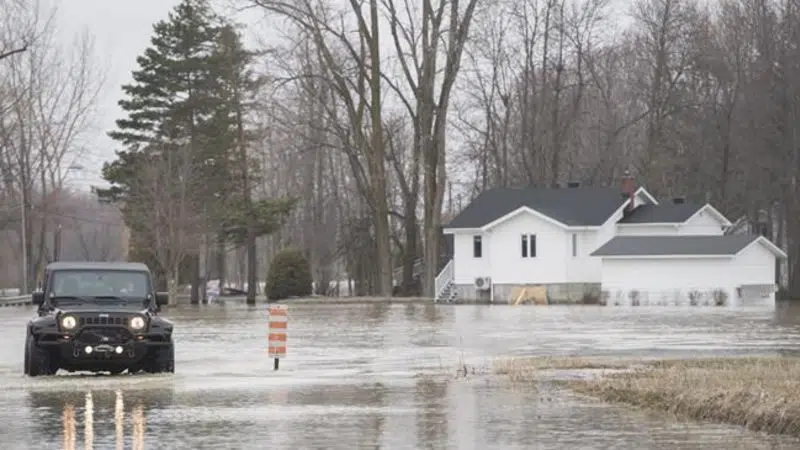
Hundreds of Canadian troops deployed to flood zones in Quebec and N.B.
MONTREAL — Quebec Premier Francois Legault will visit flood-damaged regions north of Montreal today, as warm temperatures and rising water levels threaten to worsen the spring flooding already wreaking havoc across a wide region.
Legault will visit a community centre and flooded homes on an island in the Laval region, where Canadian Forces troops are expected to join the efforts to limit the damage. The city says it could receive another 20 to 40 millimetres of rain in the coming days.
Many people across Quebec and New Brunswick have been filling sandbags in an effort to protect their homes. Officials say water levels are expected to rise in many regions due to warming temperatures that contribute to snowmelt and ice movement.


